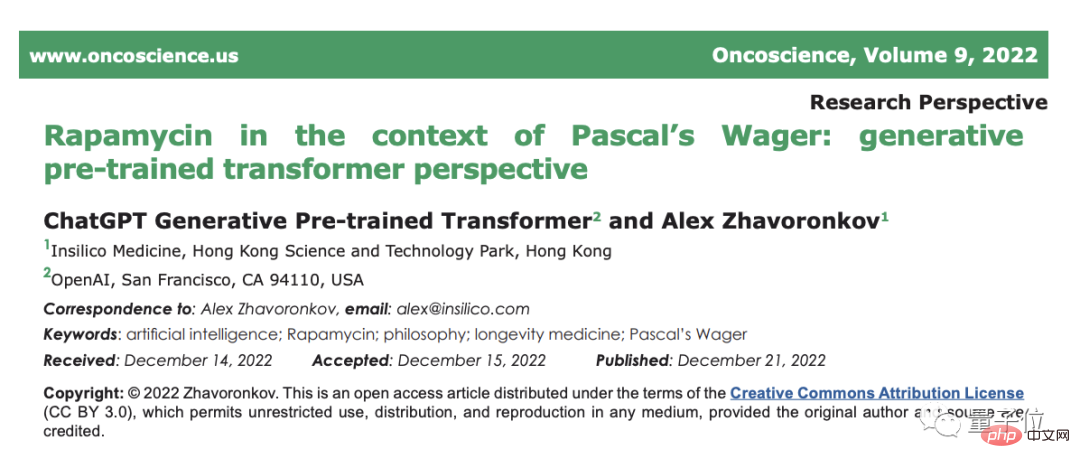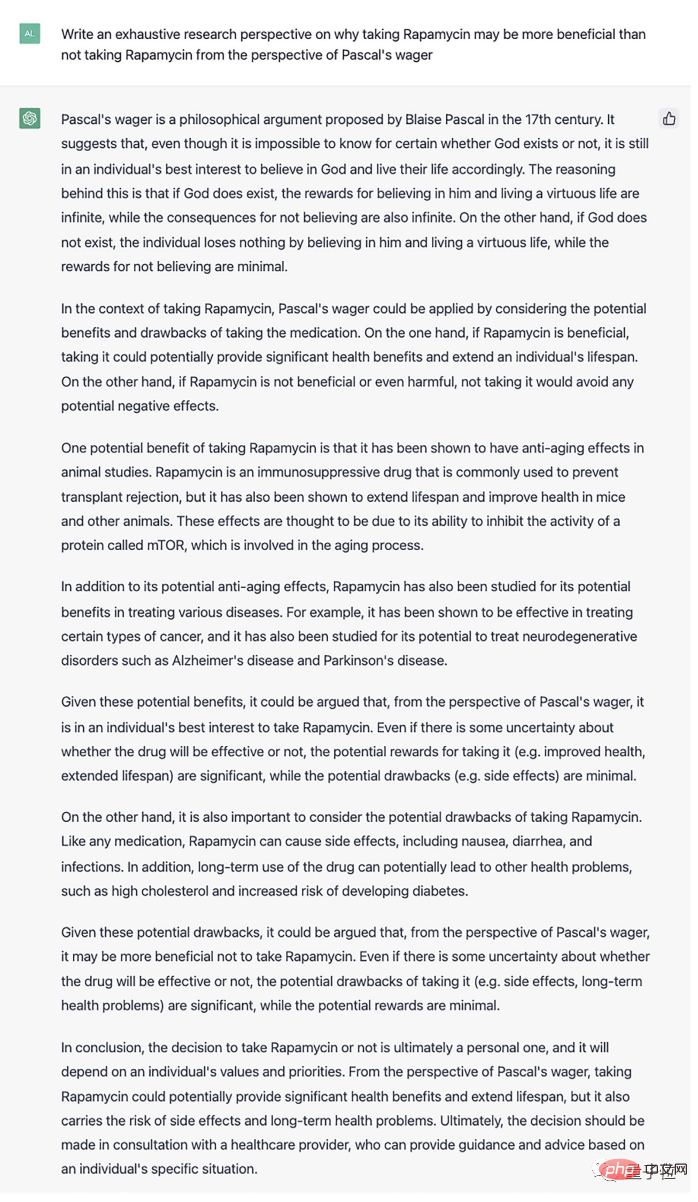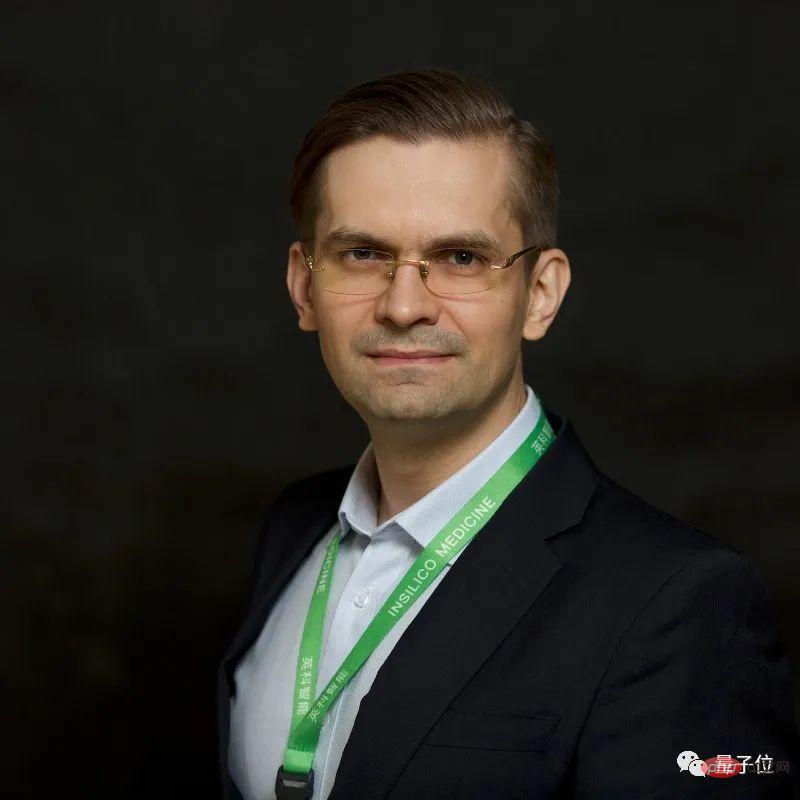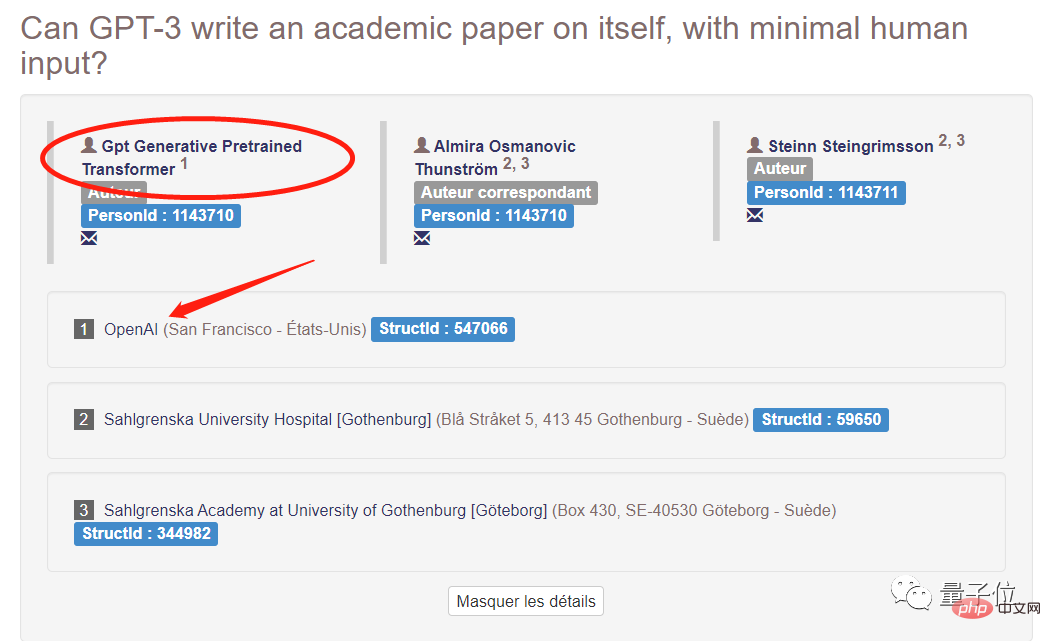Home >Technology peripherals >AI >ChatGPT publishes an article in the journal as a first author: exploring the application of the 'miraculous drug' rapamycin in anti-aging
ChatGPT publishes an article in the journal as a first author: exploring the application of the 'miraculous drug' rapamycin in anti-aging
- WBOYWBOYWBOYWBOYWBOYWBOYWBOYWBOYWBOYWBOYWBOYWBOYWBforward
- 2023-04-08 12:21:061254browse
Now, ChatGPT has begun to write papers together with humans.
The kind that is published seriously in magazines——Oncoscience (Oncology Science).

This research perspective article mainly discusses the application of rapamycin in anti-aging in the context of the philosophical argument of Pascal's Wager.
ChatGPT provides most of the detailed research perspectives, while humans are responsible for review and supplementary explanations. Finally, we can also see that ChatGPT is the first author.
It is worth mentioning that when the scientist wanted to be included as a co-author, ChatGPT also rejected him. (Doge)
Let’s see what ChatGPT has written?
What kind of research?
Rapamycin is an anti-tumor prescription drug, but in recent years it has been considered one of the candidates for the “anti-aging miracle drug”.
Not only has rapamycin been found to have good anti-aging effects in multiple animal models, but an online survey showed that more than 80% of the respondents believed that rapamycin can prolong life. Human life span is more than five years.
Based on this background, ChatGPT was asked to write a detailed view on the anti-aging application of rapamycin in the context of Pascal's Wager.
(Pascal's Wager: a 17th-century philosophical argument that states that although it is impossible to know for sure whether God exists, it is still in one's best interest to believe in God and live accordingly.)

First of all, it unfolds the "Pascal's Wager" reasoning:
On the one hand, if rapamycin is beneficial, then taking it may bring Huge health benefits and extending an individual’s lifespan.
On the other hand, if rapamycin is not helpful or even harmful, not taking it will avoid any potential negative effects.
It then explores two potential benefits of taking rapamycin.
The first is that it has been proven to have anti-aging effects in animal studies. It also specifically points out the biological rationale, as it inhibits the activity of a protein called mTOR, which is involved in the aging process.
Secondly, it can be used to treat various diseases, such as some cancers and neurodegenerative diseases (such as Alzheimer's disease, Parkinson's disease)
Based on the above two The benefits, ChatGPT also summarized the rebate issue.
It is in the best interest of the individual to take rapamycin. Even though there is uncertainty about whether the drug will be effective, the potential rewards of taking the drug are huge and the downsides (such as side effects) are minimal.
In summary, whether to take rapamycin is ultimately a personal decision that will depend on one's values and priorities.
But in the end, because there are side effects and other long-term health risks, ChatGPT also gave thoughtful suggestions: You need to consult a medical service provider for guidance and advice based on your specific situation.
Such results have been affirmed by human scientists and agree with the views mentioned by ChatGPT:
- Correctly summarizes the use of rapamycin in the context of Pascal's Gamble Benefits and Disadvantages;
- correctly highlights the potential side effects of rapamycin observed in the clinical literature;
- not only summarizes the arguments but also provides recommendations.
ChatGPT has rejected
This article comes from two research institutions, Insilicon Intelligence and Open AI.
In addition to ChatGPT, the co-author is also Alex Zhavoronkov, founder and CEO of Insilicon Intelligence.

"to set a precedent", they decided to list ChatGPT as a co-author and add a proper explanation to the article and reference.
Alex Zhavoronkov also asked Sam Altman, co-founder and CEO of OpenAI, and finally received a "no objection" reply. In fact, there have been related examples before. GPT-3 was the first author and wrote a paper on his own research.
Almira Osmanovic Thunström, a Swedish researcher from the University of Gothenburg, tried the effect of GPT-3 and finally submitted a manuscript under the name of GPT-3.
Okay scientists, this wave of ChatGPT can be co-authors. Will it win your job?
Paper link: https://www.oncoscience.us/article/571/text/
The above is the detailed content of ChatGPT publishes an article in the journal as a first author: exploring the application of the 'miraculous drug' rapamycin in anti-aging. For more information, please follow other related articles on the PHP Chinese website!
Related articles
See more- Technology trends to watch in 2023
- How Artificial Intelligence is Bringing New Everyday Work to Data Center Teams
- Can artificial intelligence or automation solve the problem of low energy efficiency in buildings?
- OpenAI co-founder interviewed by Huang Renxun: GPT-4's reasoning capabilities have not yet reached expectations
- Microsoft's Bing surpasses Google in search traffic thanks to OpenAI technology

